| Location | Thottam Type | Thottam Size |
|---|---|---|
| Chengalpattu District, Tamil Nadu, India | Ground | 36 acres |
Alladi Mahadevan founded his farm, The Organic Farm, in 1995. Not willing to lose his roots, and inspired by his father, he decided to start this farm in the Chennai area. With a background in agricultural economics, he travelled the world to understand how to set up an organic farm and to learn about sustainability. Through his travels, he learnt how to be sustainable and realised that profitability would come as an added benefit and should not be prioritised. This realization helped him greatly in planning his own farm, which is located about 70 km from Chennai, in Kanchipuram district. His farm comprises 36 acres of land with 27 varieties of fruit trees, 40 varieties of vegetables, oil seeds, paddy, shade trees, coconut palms, flowers and herbs that are multi-cropped.
Mahadevan believes in natural sustainability for soil and water; when one talks about soil sustainability, he believes that it is important to manage soil in farms by practicing composting, maintaining a cropping pattern and following other simple practices. According to him,
“Soil is the mother and a healthy mother gives rise to healthy children. The soil has everything it requires to remain healthy and the art of good maintenance lies in how it is triggered.”
His farm is managed with this philosophy. A well planned, multi-cropping pattern is followed to manage soil such that its nourishment is not lost. For instance, crops grown include keerai which have about 6 inches rooting system and take up to 3 weeks to grow, short term vegetables such as gourds, okra, tomatoes which have 2 to 3 feet rooting systems and take up to 90 days to grow, midterm varieties such as Sweet Lime (saathukudi), Sappota (chikku), and Guava which have 7 to 8 feet long roots, long term crops such as Coconut, Jackfruit, Jamun and Fig (elanthai pazham), and other even more long term plants such as Banyan, Peepal, Tamarind, Timber and Malabar Neem (Malai Vembu). Nutrition is gained from leaves or dead roots at the end of harvesting periods when plants are left in the soil. One example of such a strategy used to replenish the soil through natural methods is through the multi-cropping pattern used to cultivate green gram and black gram which release carbon and nitrogen into the soil.
Other strategies that are followed to keep things as natural and sustainable as possible are to limit ploughing. Around 70% to 80% of the land in the farm is not ploughed. Cows and calves are free to roam around the land and provide abundant natural fertiliser that is used to maintain soil nutrients. Earthworms make holes in the soil. This, coupled with the rains, a robust rainwater harvesting system and an open pond that attracts more than 16 species of birds, allow for ample irrigation. The mango fields in his farm have not been manually irrigated in the last four years, Mahadevan admits proudly.
Mahadevan also roots for growing crops based on different seasons and festivals. This, he says, plays a role in aiding natural soil management. He has overcome his biggest challenges in farming by taking up traditional farming practices. His advice to farmers is to grow everything. His major challenge therefore, on getting profit out of his practice, was resolved when he took up sustainable farming techniques after which profitability was never an issue. The farm environment became diverse and sustainable which worked to his benefit. The farm also houses a nursery where all his plants are available as sapling or seeds.
Apart from maintaining his farm, his team is also involved in setting up terrace gardens, and in assisting people in natural treatment of grey water using plants, without the use of Sewage Treatment Plants (STPs) or Effluent Treatment Plants (ETPs). Mr. Mahadevan feels that to start an urban garden in one’s home, one does not have to look beyond their home for a gardening kit. According to him, an average Indian household has access to about 83 food items, of which about 20 can be used to procure seeds. He believes that planning one’s calendar, making the most use of available resources, and access to good soil and patience is key to gardening. He recommends growing greens as a priority, along with pulses and legumes, as they are packed with nutrients. For instance, soaking methi seeds overnight and crushing coriander seeds before sowing, speeds up germination.
The Organic Farm sells their harvest to exclusive organic stores like Restore and OFM (Organic Farmers Market). They also supply produce directly to residential complexes in ECR and OMR.
Alladi Mahadevan, The Organic Farm
Address: The Organic Farm, Malarajkuppam Village,
Nedumaram Panchayat, Cheyyur, Chengalpattu District,
Tamil Nadu 603305
Phone: +919840277566
info@theorganicfarm.in
http://theorganicfarm.in
REFERENCES
Personal Interview;
Kala Bhavani D. (March 29, 2020). The renewed focus on kitchen gardens when lockdown strikes. The Hindu, Accessed from: https://www.thehindu.com/news/cities/chennai/the-renewed-focus-on-kitchen-gardens-when-lockdown-strikes/article31201275.ece


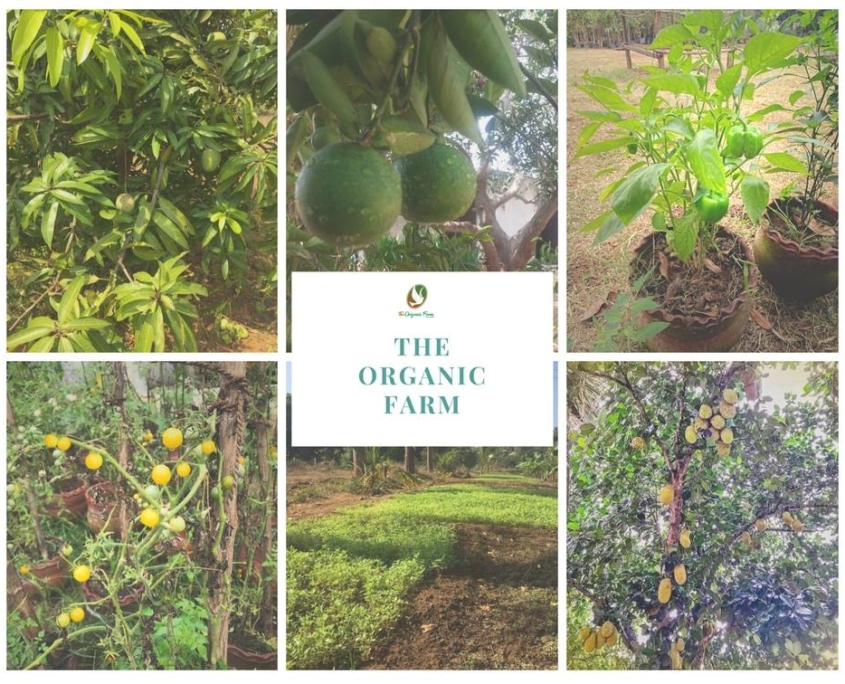
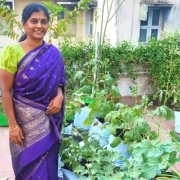 © The Better India
© The Better India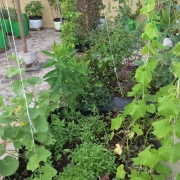 © Gayatri Ramachandran
© Gayatri Ramachandran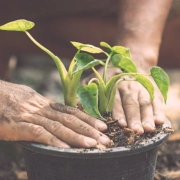 © The Better India
© The Better India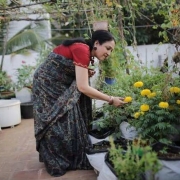 The Hindu
The Hindu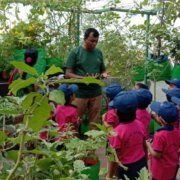 © Indra Gardens
© Indra Gardens © The Hindu
© The Hindu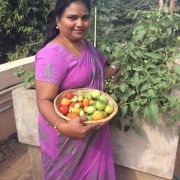 Special Arrangement
Special Arrangement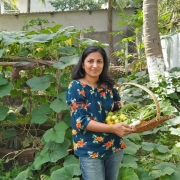 Kalpana Manivanan
Kalpana Manivanan © The Better India
© The Better India © Sumithra Srikanth
© Sumithra Srikanth